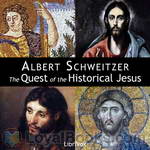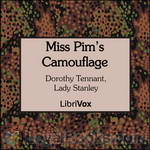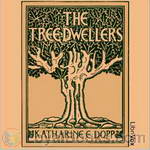|
Books Should Be Free Loyal Books Free Public Domain Audiobooks & eBook Downloads |
|
|
Books Should Be Free Loyal Books Free Public Domain Audiobooks & eBook Downloads |
|
Top Authors |
|---|
|
Book type:
Sort by:
|
By: Joseph Alexander Altsheler (1862-1919) | |
|---|---|
 Shades of the Wilderness
Shades of the Wilderness
"The Shades of the Wilderness" is the seventh book of the Civil War Series by Joseph A. Altsheler. Picking up where "The Star of Gettysburg" left off, this story continues the Civil War experiences of Harry Kenton and his friends in the Southern army, from the retreat after Gettygurg, to Richmond, and then through the battles of the Wilderness and Spottsylvania, to Robert E. Lee's heroic stand during the siege of Petersburg. Other books in the Civil War series are: "The Guns of Bull Run," "The Guns of Shiloh," "The Scouts of Stonewall," "The Sword of Antietam", "The Star of Gettysburg","The Rock of Chickamauga", and "The Tree of Appomattox." | |
 Hunters of the Hills
Hunters of the Hills
"The Hunters of the Hills" is the first volume of a series dealing with the great struggle of France and England and their colonies for dominion in North America, culminating with the fall of Quebec. It is also concerned to a large extent with the Iroquois, the mighty league known in their own language as the Hodenosaunee, for the favor of which both French and English were high bidders. In his treatment of the theme the author has consulted many authorities, and he is not conscious of any historical error. | |
 Tree of Appomattox
Tree of Appomattox
"The Tree of Appomattox" concludes the series of connected romances dealing with the Civil War, begun in "The Guns of Bull Run," and continued successively through "The Guns of Shiloh," "The Scouts of Stonewall," "The Sword of Antietam," "The Star of Gettysburg," "The Rock of Chickamauga" and "The Shades of the Wilderness" to the present volume. It has been completed at the expense of vast labor, and the author has striven at all times to be correct, wherever facts are involved. So far, at least, no historic detail has been challenged by critic or reader... | |
By: Santa Teresa de Jesus (Avila) (1515-1582) | |
|---|---|
 The Way of Perfection
The Way of Perfection
El Camino de Perfección (trans.: The Way of Perfection) is a method for making progress in the contemplative life written by St. Teresa of Ávila for the sisters of her reformed convent of the Carmelite Order (Discalced). St. Teresa was a major figure of the Catholic Reformation in 16th Century Spain. | |
By: Albert Schweitzer (1875-1965) | |
|---|---|
 The Quest of the Historical Jesus
The Quest of the Historical Jesus
In this book, Schweitzer traces the historical progress of 'Historical Jesus' research, from Hermann Reimarus in the mid 18th century, to William Wrede at the turn of the 20th. Schweitzer showed how Jesus' image had changed with the times and with the personal proclivities of the various authors. He concluded with his own synopsis and interpretation of what had been learned over the course of the previous century. He took the position that the life of Jesus must be interpreted in the light of Jesus' own convictions, which he characterized as those of late Jewish eschatology. (Introduction from Wikipedia, modified by JoeD) | |
By: Wright, Orville and Wilbur (1871-1948 / 1867-1912) | |
|---|---|
 The Early History of the Airplane
The Early History of the Airplane
The Brothers Orville (1871 - 1948) and Wilbur (1867 – 1912) Wright made the first controlled, powered and sustained heavier-than-air flight, on 17th December 1903. They were not the first to build and fly aircraft, but they invented the controls that were necessary for a pilot to steer the aircraft, which made fixed wing powered flight possible. The Early History of the Airplane consists of three short essays about the beginnings of human flight. The second essay retells the first flight: "This... | |
By: Joseph Smith Fletcher (1863-1935) | |
|---|---|
 Orange-Yellow Diamond
Orange-Yellow Diamond
| |
 Talleyrand Maxim
Talleyrand Maxim
John Mallathorpe, a wealthy Yorkshire industrialist and land owner dies in an accident, apparently without making a will. His estate goes to his wife and two children and they live the good life for a number of years. However, an old bookseller, whilst clearing some old books passed on from the Mallathorpe estate, finds a copy of Mallathorpe's will inside one of the books, and unfortunately for the family the will bequeaths the whole estate minus a small endowment for the family, to the city authorities... | |
 Herapath Property
Herapath Property
Jacob Herapath, a wealthy property developer and member of Parliament, is found dead in his office, a revolver at his side and a bullet wound to the head. An allegedly forged Will deepens the mystery. An intriguing puzzle with plenty of twists and turns. | |
 Scarhaven Keep
Scarhaven Keep
The northern English sea coast provides a compelling backdrop for this genre of writing; a mysterious disappearance, a love interest, and plot twists 'se mijotent' to produce an intriguing read. | |
 Rayner-Slade Amalgamation
Rayner-Slade Amalgamation
Marshall Allerdyke is driving through the night from London to Hull in response to an urgent telegram from his cousin. As he nears Hull, a beautiful woman stops his car to ask for directions to Scotland. Odd time to be traveling so far and in such a hurry, but Allerdyke's mind is elsewhere. When he finally arrives in Hull, he finds his cousin dead in his hotel room and a valuable consignment of jewels missing. Allerdyke's only clue rests with that woman hurrying off to Scotland. | |
By: Rita (E. M. Gollan) (1850-1938) | |
|---|---|
 The Mystery of a Turkish Bath
The Mystery of a Turkish Bath
A group of guests, at an exclusive luxury hotel in Hampshire, are the witnesses of an illustration of occult powers, demonstrated by “the Mystery”, as Mrs. Jefferson named the beautiful stranger who one day appeared in the Turkish Baths of the hotel. The events that follow lead Mrs. Jefferson to question the wisdom of her interest in the occult. | |
By: Irving Bacheller (1859-1950) | |
|---|---|
 Eben Holden - A Tale of the North Country
Eben Holden - A Tale of the North Country
Eben Holden - A Tale of the North Country. Having lost both parents and his home in northern Vermont, orphan Willie Brower is taken in by Eben Holden, "Uncle Eb" who transports him westward to save him from being sent to an orphanage. Through the Adirondacks and into the St. Lawrence valley they travel. Eben is kind, happy, and loves to tell stories to the youngster, many of which were to shape the life and ideals of Willie during his life.This story follows Willie as a young orphan, later as a journalist, and finally as a soldier who enlists in the army at the outset of the American Civil War... | |
By: Thomas Tapper | |
|---|---|
 Stories of Great Composers for Children
Stories of Great Composers for Children
This is a collection of ten short, entertaining, informative picture-book biographies of famous composers. Each book tells about the childhood and great achievements of a composer, and includes a short musical example. | |
 Music Talks With Children
Music Talks With Children
"A book of this kind, though addressed to children, must necessarily reach them through an older person. The purpose is to suggest a few of the many aspects which music may have even to the mind of a child. If these chapters, or whatever may be logically suggested by them, be actually used as the basis of simple Talks with children, music may become to them more than drill and study. They should know it as an art, full of beauty and of dignity; full of pure thought and abounding in joy. Music with these characteristics is the true music of the heart... | |
By: Basil Joseph Mathews (1879-1951) | |
|---|---|
 Paul the Dauntless
Paul the Dauntless
“We shall in this book try to go in the footsteps of Paul. It will not be all easy traveling for any of us, to journey with this daring explorer of the Unseen; there is some steep hill-climbing, some scrambling over boulders, long flat tramps over the plain, and dangerous sea-journeys for anyone who will attempt really to follow the life of this man whose eager brain was ever ‘Voyaging on strange seas of thought/Alone!’ But, if you will … trudge by him till you really know him, you will have found for yourself one of the great companions of the world.” (From the Introduction) | |
By: Rebecca Harding Davis (1831-1910) | |
|---|---|
 Life in the Iron Mills
Life in the Iron Mills
This 1861 novella was the first published work by Rebecca Harding Davis: writer, social reformer, and pioneer of literary realism. It tells the story of Hugh Wolfe, a Welsh laborer in an iron mill who is also a talented sculptor, and of Deborah, the hunchbacked woman who unrequitedly loves him. | |
By: F. Marion Crawford | |
|---|---|
 Man Overboard
Man Overboard
Peculiar happenings aboard the schooner Helen B. Jackson when one night during a storm, the small crew found themselves diminished by one. Somebody had gone overboard, and it was surmised that it was one of the twin Benton brothers. But oddly enough, it seemed that the ‘presence’ of the missing twin continued to exist on board during the following weeks. For example, one extra set of silverware was found to be used after each meal, but nobody claimed to be using them. What then did happen that stormy night, and which brother, if indeed it was one of the brothers, was the man who went overboard? | |
By: Lady Dorothy (Stanley) Tennant (1855-1926) | |
|---|---|
 Miss Pim's Camouflage
Miss Pim's Camouflage
Mid-WWI, staid Englishwoman Miss Perdita Pim suffers a sunstroke gardening & gains the power of invisibility. She becomes a super-secret agent, going behind German lines, sometimes visible, sometimes not, witnessing atrocities & gleaning valuable war information. | |
By: Daniel A. Lord (1888-1955) | |
|---|---|
 Red Arrows in the Night
Red Arrows in the Night
The Scarlet Archer of Agincourt is claimed by the Erkenwold’s as their family ghost. Tradition held that the death of an important Erkenwold was always heralded by the apparition of the Scarlet Archer. Now in the early years of WWII, the archer has made an appearance on the family estate on the US coast. Is it a ghost or something more sinister, and what does he or she want?This mystery novel was written by Daniel A Lord, S.J., who was a popular American Catholic writer. The subjects of the works in his bibliography range from religion, humor, plays, songs, mysteries and even politics... | |
 Murder in the Sacristy
Murder in the Sacristy
A sacristan is found murdered in the sacristy and the safe robbed of valuable jewels. All clues seem to point to the priest as the murderer. But is the priest the guilty party - or is it the communist - the nazi - the Senator's wife - or someone else?This mystery novel, set in World War II Chicago, was written by Daniel A Lord, S.J., who was a priest and popular American Catholic writer. The subjects of the works in his bibliography range from religion, humor, plays, songs, mysteries and even politics. His most influential work was possibly in drafting the 1930 Production Code for motion pictures. (Introduction by Maria Therese) | |
By: Woods Hutchinson | |
|---|---|
 A Handbook of Health
A Handbook of Health
The Woods Hutchinson Health Series, A HANDBOOK OF HEALTHBy Woods Hutchinson, A. M., M. D. PREFACE Looking upon the human body from the physical point of view as the most perfect, most ingeniously economical, and most beautiful of living machines, the author has attempted to write a little handbook of practical instruction for the running of it. And seeing that, like other machines, it derives the whole of its energy from its fuel, the subject of foods--their properties, uses, and methods of preparation--has been gone into with unusual care... | |
 The Child's Day
The Child's Day
The Child's Day, The Woods Hutchinson Health SeriesBy Woods Hutchinson, A.M., M.D. FOREWORD If youth only knew, if old age only could! lamented the philosopher. What is the use, say some, of putting ideas about disease into children's heads and making them fussy about their health and anxious before their time? Precisely because ideas about disease are far less hurtful than disease itself, and because the period for richest returns from sensible living is childhood--and the earlier the better. It is abundantly worth while to teach a child how to protect his health and build up his strength; too many of us only begin to take thought of our health when it is too late to do us much good... | |
By: Edward Streeter (1891-1976) | |
|---|---|
 Dere Mable
Dere Mable
Bill is in training camp, preparing to go off to World War I. This book is a collection of love letters written to his sweetheart, Mable. The letters are humorous, mis-spelled, and have many stories of life in an army camp – all from Bill’s unique perspective. | |
By: Mamie Dickens (1838-1896) | |
|---|---|
 My Father As I Recall Him
My Father As I Recall Him
“If, in these pages, written in remembrance of my father, I should tell you, my dear friends, nothing new of him, I can, at least, promise you that what I shall tell will be told faithfully, if simply, and perhaps there may be some things not familiar to you.” So begins chapter one of My Father as I Recall Him, the personal recollections of Mary Dickens, (Mamie, as she was called), the oldest daughter of the great novelist, Charles Dickens. | |
By: Gaius Sallustius Crispus (Sallust) (86-34 BC) | |
|---|---|
 The Catiline Conspiracy and the Jugurthine War
The Catiline Conspiracy and the Jugurthine War
The Catiline Conspiracy and The Jugurthine War are the two separate surviving works of the historian commonly known as “Sallust”. Nearly contemporary to the events he describes, he is supposed to have been a retired officer of Caesar’s army. “Catiline” contains the history of the memorable year 63. Sallust describes Catiline as the deliberate foe of law, order and morality (although party politics may have influenced his view). Still, Sallust does recount Catiline’s noble traits, including his courage in the final battle... | |
By: Oliver Wendell Holmes | |
|---|---|
 The One-Hoss Shay
The One-Hoss Shay
This is a small collection of whimsical poems by the American physician and author Oliver Wendell Holmes, Sr. "The Deacon's Masterpiece" describes the "logical" outcome of building an object (in this case, a two-wheeled carriage called a shay) that has no weak points. The economic term "one hoss shay," referring to a certain model of depreciation, derives its name from this poem. "How the Old Horse Won the Bet" is a lighthearted look at a horse race. Finally, "The Broomstick Train" is a wonderfully Halloween-y explanation of how an electric tram really works. | |
By: Oliver Wendell Holmes, Sr. (1809-1894) | |
|---|---|
 My Hunt After 'The Captain'
My Hunt After 'The Captain'
Holmes describes his frantic search through Civil War torn landscapes for his wounded son, the future Supreme Court Justice. Originally published in The Atlantic Magazine, 1862. Holmes, Sr. (1809 -1894) was an American physician, poet, professor, lecturer, and author. He was regarded by his peers as one of the best writers of the 19th century. His most famous prose works are the "Breakfast Table" series, which began with The Autocrat of the Breakfast Table (1858). He is also recognized as an important medical reformer. | |
By: Harry Leon Wilson (1867-1939) | |
|---|---|
 Merton of the Movies
Merton of the Movies
Merton of the Movies is a comedy that centers around Merton Gill, an aspiring dramatic artist from Simsbury, Illinois who makes his way to Hollywood to become a serious actor. How could Merton fail in attaining his dreams after finishing a correspondence course from the General Film Production Company of Stebbinsville, Arkansas, certifying him to be a competent screen actor? Harry Leon Wilson, the author, was a very popular humor writer in the first decades of the 20th century. This book was made into film several times, the last in 1947 starring Red Skelton. | |
By: Frederick Litchfield | |
|---|---|
 Illustrated History of Furniture
Illustrated History of Furniture
From the Earliest to the Present TimeBy Frederick Litchfield.PREFACE.In the following pages the Author has placed before the reader an account of the changes in the design of Decorative Furniture and Woodwork, from the earliest period of which we have any reliable or certain record until the present time. A careful selection of illustrations has been made from examples of established authenticity, the majority of which are to be seen, either in the Museums to which reference is made, or by permission of the owners; and the representations of the different interiors will convey an idea of the character and disposition of the furniture of the periods to which they refer... | |
By: Samuel Smiles (1812-1904) | |
|---|---|
 Lives of the Engineers (George and Robert Stephenson)
Lives of the Engineers (George and Robert Stephenson)
George Stephenson did not invent the steam engine, that was due to Newcomen and later to James Watt. He did not invent the steam locomotive, that was due to a number of people including Cugnot, Trevithick and others. He did not invent the Railway. Railways or tramways had been in use for two hundred years before Stephenson.The reason why Stephenson was known as ‘The father of the steam locomotive’ was that he took a primitive, unreliable and wholly uneconomic device and turning it into an efficient... | |
By: Robert W. Chambers (1865-1933) | |
|---|---|
 Slayer of Souls
Slayer of Souls
Tressa Norne is an American living in China. After her life was spared during a revolution in the area, Tressa finds herself taken as a slave and forced to serve Erlik, a demon-god, and his cult. She ends up escaping back to America, but only to find that she is being followed by the Secret Service, and her former masters. (Ann Boulais) | |
By: Elinore Pruitt Stewart (1878-1933) | |
|---|---|
 Letters of a Woman Homesteader
Letters of a Woman Homesteader
The writer of the following letters is a young woman who lost her husband in a railroad accident and went to Denver to seek support for herself and her two-year-old daughter, Jerrine. Turning her hand to the nearest work, she went out by the day as house-cleaner and laundress. Later, seeking to better herself, she accepted employment as a housekeeper for a well-to-do Scotch cattle-man, Mr. Stewart, who had taken up a quarter-section in Wyoming. The letters, written through several years to a former employer in Denver, tell the story of her new life in the new country... | |
 Letters on an Elk Hunt
Letters on an Elk Hunt
This is a sequel to Letters of a Woman Homesteader in which Elinore Rupert (Pruitt) Stewart describes her arrival and early years on a Burntfork Wyoming ranch in 1909-1913. The letters are written to her elderly friend, Mrs. Coney, in Denver. In the present collection of letters, Elinore describes a lively excursion on horseback and wagon into the Wyoming wilderness during July-October 1914. Her traveling companions are her husband “Mr. Stewart,” their three oldest children, and kind-hearted, opinionated neighbor Mrs... | |
By: Robert Falcon Scott (1868-1912) | |
|---|---|
 The Journals of Robert Falcon Scott
The Journals of Robert Falcon Scott
Capt. Robert F. Scott's bid to be the leader of the first expedition to reach the South Pole is one of the most famous journeys of all time. What started as a scientific expedition turned out to be an unwilling race against a team lead by R. Admunsen to reach the Pole. The Norwegian flag already stood at the end of the trail when Scott's party reached their target. All the five men of the Scott expedition who took part in the last march to the Pole perished on their way back to safety. Robert F. Scott kept a journal throughout the journey, all the way to the tragic end, documenting all aspects of the expedition... | |
By: Horatio Nelson | |
|---|---|
 The Letters of Lord Nelson to Lady Hamilton
The Letters of Lord Nelson to Lady Hamilton
Horatio Nelson, 1st Viscount Nelson, 1st Duke of Bronté, KB (29 September 1758 – 21 October 1805) was an English flag officer famous for his service in the Royal Navy, particularly during the Napoleonic Wars. He won several victories, including the Battle of Trafalgar in 1805, during which he was killed. These are the letters that he wrote to Lady Hamilton, with whom he was having a notorious affair until his death in 1805. | |
By: Henry Adams (1838-1918) | |
|---|---|
 Democracy - An American Novel
Democracy - An American Novel
Not until after his death in 1918 was it revealed that Henry Adams was the anonymous author of Democracy, which had been published to great acclaim in 1880. Though the book avoids dates and the characters are fictitious, the setting is no doubt that of Washington in the 1870s, the age of Presidents Grant and Hayes. The young widow, Madeleine Lee, wealthy and independent, is the protagonist, who leaves her New York for Washington to turn her intelligence to politics and to see what makes her country tick... | |
By: Louis Tracy (1863-1928) | |
|---|---|
 The Albert Gate Mystery
The Albert Gate Mystery
A new case for barrister and hobby detective Reginald Brett: The imperial diamonds were sent by the Sultan to London, to be cut in Albert Gate mansion by experts, all the while under the especial protection of the British government. One morning, however, the Turkish officials are found dead in the house, and the diamonds have vanished - despite the strict measures taken to protect them. The first suspicion falls on Jack Talbot, a young secretary at the Foreign Office, in whose charge this mission was, because he also disappeared without a trace on the same evening. Convinced that Talbot is innocent, his friend Lord Fairholme turns to Reginald Brett for help... | |
 A Mysterious Disappearance
A Mysterious Disappearance
Lady Dyke disappears mysteriously, and barrister and hobby detective Claude Bruce appears to be one of the last persons to have seen her. A short time later a dead body is found in the river, and Bruce follows the trails. Who is Sydney H. Corbett? Why did the Lady's maid disappear shortly after her Lady? And what business did Lady Dyke have at Sloane Square? If Bruce can find the answer to these questions, he will find the solution to the mystery. (Introduction by Carolin) | |
 The Silent Barrier
The Silent Barrier
The Silent Barrier is a story of mystery and romance with Charles K. Spencer, a well-to-do young American mining engineer, as main character. Drinking his water in a hotel in London one day, he overhears a conversation between two young women, one of whom speaks of going to Switzerland. He decides to play "fairy godfather" and send the comparatively poor, but most amicable other girl there, without her knowing anything of him, under the pretext of furthering her career as a writer for a scientific journal. However, the girl is shadowed on her journey by the mysterious Mr. Mark Bower. Convinced from the first that Bower is a rogue, Mr. Spencer decides to follow them to protect the girl... | |
 Postmaster's Daughter
Postmaster's Daughter
A charming mystery story set in the early 1900s which is as much about the townspeople, sleuths and other colorful characters as it is about the murder. Filled with comic antics of Scotland Yard fellows, local police, and residents of the town, keeps the murder ever elusive. The "whodunit" is maintained until the very end and the laughter keeps going even after the mystery is solved. | |
 Stowmarket Mystery, or, a Legacy of Hate
Stowmarket Mystery, or, a Legacy of Hate
Another case for Reginald Brett, barrister and hobby detective: David Hume-Frazer is in some trouble. He was the prime suspect in the murder case of his cousin, Alan. Though he was never convicted, suspicion clings to him, and he wishes his name to be cleared before he marries his fiancé, Helen Layton. The case is baffling: Alan was murdered with a Japanese knife on his own grounds, in front of the library windows -- in the same place, where four of his ancestors already died "in their boots"... | |
By: Oliver Onions (1873-1961) | |
|---|---|
 The Beckoning Fair One
The Beckoning Fair One
A classic ghost story of a haunted house, and the haunted man who lives in it. | |
 Widdershins
Widdershins
Onions wrote several collections of ghost stories, of which the best known is Widdershins (1911). It includes the novella The Beckoning Fair One, widely regarded as one of the best in the genre of horror fiction, especially psychological horror. On the surface, this is a conventional haunted house story: an unsuccessful writer moves into rooms in an otherwise empty house, in the hope that isolation will help his failing creativity. His sensitivity and imagination are enhanced by his seclusion, but his art, his only friend and his sanity are all destroyed in the process... | |
By: Georg Ebers (1837-1898) | |
|---|---|
 Arachne
Arachne
Ledscha, living in ancient Egypt, has lost her betrothed and all hope of love. But the gods see otherwise. She now loves a Greek sculptor, who only wanted her for a model, but even that will not happen. She has been replaced by another woman for the statue of Arachne. Who do the gods see her with? Is it the Greek, or someone else? This work is the last written and published in German by Georg Ebers before he died in 1898. He wrote many novels set it ancient Egypt, which sparked the general interest in and popularity of Egyptology that still thrives today. This book was translated into English also in 1898. | |
 Joshua
Joshua
Hosea is a commander in Pharaoh's army... and a Hebrew. As he returns home from war, he finds that there has been a great pestilence in Egypt and his people are being blamed for it. Hosea receives a message from his father to follow his people to Succoth, but he is hesitant to give up his position in the army. Someone else also sends a message, containing a new name for him from God. There is much intrigue in this retelling of the Exodus, both among the Hebrews and in the court of Pharaoh. | |
By: Baron Ludvig Holberg (1684-1754) | |
|---|---|
 Niels Klim's Journey Under the Ground
Niels Klim's Journey Under the Ground
Niels Klim’s Underground Travels, originally published in Latin as “Nicolai Klimii Iter Subterraneum” (1741) is a satirical science-fiction/fantasy novel written by Ludvig Holberg, a Norwegian-Danish dramatist, historian, and essayist, born in Bergen, Norway. It was his first and only novel. It describes a utopian society from an outsider’s point of view, and often pokes fun at diverse cultural and social topics such as moral, science, sexual equality, religion, governments, and philosophy. | |
By: Novalis | |
|---|---|
 Hymns to the Night
Hymns to the Night
“Hymns to the Night” is the last published work of Georg Philipp Friedrich Freiherr von Hardenberg (1772-1801), the German philosopher and early Romantic poet whose pen name was simply “Novalis”. The work alternates poetry and prose, exploring a personal mythology of darkness and light, but it is also a free-associative chronicle of a young man rationalizing the untimely death of his fiancé. This version (1897) was translated by influential fantasy author and novelist George MacDonald, who cited it as a great – and early – inspiration. | |
By: Isabella M. Alden | |
|---|---|
 Ester Ried Yet Speaking
Ester Ried Yet Speaking
Authored by Isabella M. Alden under the pen name “Pansy.” Fourth in the Chautauqua Girls series. Alfred Ried (brother of Ester Ried from that series) wants to help the hundreds of poor street boys in his city to come to faith and improve their conditions, but is discouraged and overwhelmed with the task. Enter Flossy (Shipley) Roberts, a willing worker who focuses on 7 such boys and especially on one. | |
By: Adin Ballou (1803-1890) | |
|---|---|
 Christian Non-Resistance, In All Its Important Bearings
Christian Non-Resistance, In All Its Important Bearings
In this short book, Ballou defends the notion that non-resistance (today we call it non-violence) is the superior Christian method, and the one practiced by Jesus himself. | |
By: Robert F. Young (1915-1986) | |
|---|---|
 A Knyght Ther Was
A Knyght Ther Was
"But the Knyght was a little less than perfect, and his horse did not have a metabolism, and his 'castle' was much more mobile - timewise! - than it had any business being!" In 2178, once time travel had become a simple task, it had also been outlawed. Those who chose to ingnore this law were known as time-thieves, and Tom Mallory was among the best of them. When he learns the precise whereabouts of the Holy Grail in 542, he sets out to obtain it with the intention of returning it to the 22nd century to make a handsome profit and to settle on Get-Rich-Quick Street... | |
By: Walter Wood (1866-?) | |
|---|---|
 Survivors' Tales of Famous Crimes
Survivors' Tales of Famous Crimes
In this anthology of true crime tales, editor Walter Wood interviews those who were touched by the crimes recounted, sometimes as an acquaintance of the deceased or criminal or in the course of their professional duties. This work provides a personal look at some of the most sensational crimes and scandals of late 19th and early 20th century Britain. | |
By: Frederick O. Bartlett (1876-1945) | |
|---|---|
 The Web of the Golden Spider
The Web of the Golden Spider
The Web of the Golden Spider is a tale of mystery, intrigue and adventure that begins in the city, progresses to a mutinous open sea voyage, eventually leading to the remotest areas on the slopes of the Andes of South America. Wilson, our hero, finds himself in the midst of a battle between a deposed queen and revolutionists who have banded together in an effort to bring their country together as a republic. Wilson, although torn between helping mercenaries, freedom fighters and revolutionaries, is more concerned with the rescuing of the girl he has fallen in love with, but who has been snatched from him by a mysterious priest... | |
By: Ward Muir (1878-1927) | |
|---|---|
 Observations of an Orderly
Observations of an Orderly
Ward Muir brings us into the heart of an English war hospital, describing scenes of cleanliness, triumph, order and sadness. Through the eyes of the orderly we get to see the processes that kept the wards running, and relive some tales from within the hospital walls. | |
By: Katharine Elizabeth Dopp (1863-1944) | |
|---|---|
 The Tree-Dwellers
The Tree-Dwellers
Katharine E. Dopp was well-known as a teacher and writer of children’s textbooks at the turn of the 20th Century. She was among the first educators to encourage the incorporation of physical and practical activity into the elementary school curriculum at a time when such activities were becoming less commonplace in a child’s home environment. The Tree-Dwellers – The Age of Fear is the first in a series of elementary school texts written by Ms. Dopp that focus on the anthropological development of early human groups... | |
By: Marcus Clarke | |
|---|---|
 For the Term of His Natural Life
For the Term of His Natural Life
For the Term of his Natural Life, written by Marcus Clarke, was published in the Australian Journal between 1870 and 1872 (as His Natural Life), appearing as a novel in 1874. It is the best known novelisation of life as a convict in early Australian history. Described as a “ripping yarn”, and at times relying on seemingly implausible coincidences, the story follows the fortunes of Rufus Dawes, a young man transported for a murder which he did not commit. The harsh and inhumane treatment meted out to the convicts, some of whom were transported for relatively minor crimes, is clearly conveyed... | |
By: S. Baring-Gould (1834-1924) | |
|---|---|
 The Book of Werewolves: Being an Account of a Terrible Superstition
The Book of Werewolves: Being an Account of a Terrible Superstition
A survey of the myths and legends concerning lycanthropy from ancient times to the Victorian Era. | |
 Bladys of the Stewponey
Bladys of the Stewponey
The setting, geography and history of this story by Rev'd Sabine Baring-Gould, author of Onward Christian Soldiers and other well-known hymns, are all accurate, or at least as accurate as local lore will allow. Kinver has long been a midlands beauty spot, and the UK National Trust own and open one of the rock-dwellings mentioned. The 'Stewponey' too was an inn until a year or two into the twenty-first century - the present reader having stopped there for a drink and a meal many times.The story, whether... | |
By: Ignatius Loyola Donnelly (1831-1901) | |
|---|---|
 Atlantis: The Antediluvian World
Atlantis: The Antediluvian World
"Atlantis: The Antediluvian World is a book published during 1882 by Minnesota populist politician Ignatius L. Donnelly, who was born in Philadelphia, Pennsylvania during 1831. Donnelly considered Plato's account of Atlantis as largely factual and attempted to establish that all known ancient civilizations were descended from this supposed lost land. Many of its theories are the source of many modern-day concepts we have about Atlantis, like the civilization and technology beyond its time, the origins of all present races and civilizations, a civil war between good and evil, etc." | |
By: John A. Joyce | |
|---|---|
 Shakspere: Personal Recollections
Shakspere: Personal Recollections
Recording of Shakspere: Personal Recollections, by John A. Joyce.A fictitious account of a "friend" of William Shakespeare, who accompanies him from his birth to his death and beyond, chronicling Shakespeare's life, adventures, speeches, and impromptu bursts of poetry. | |